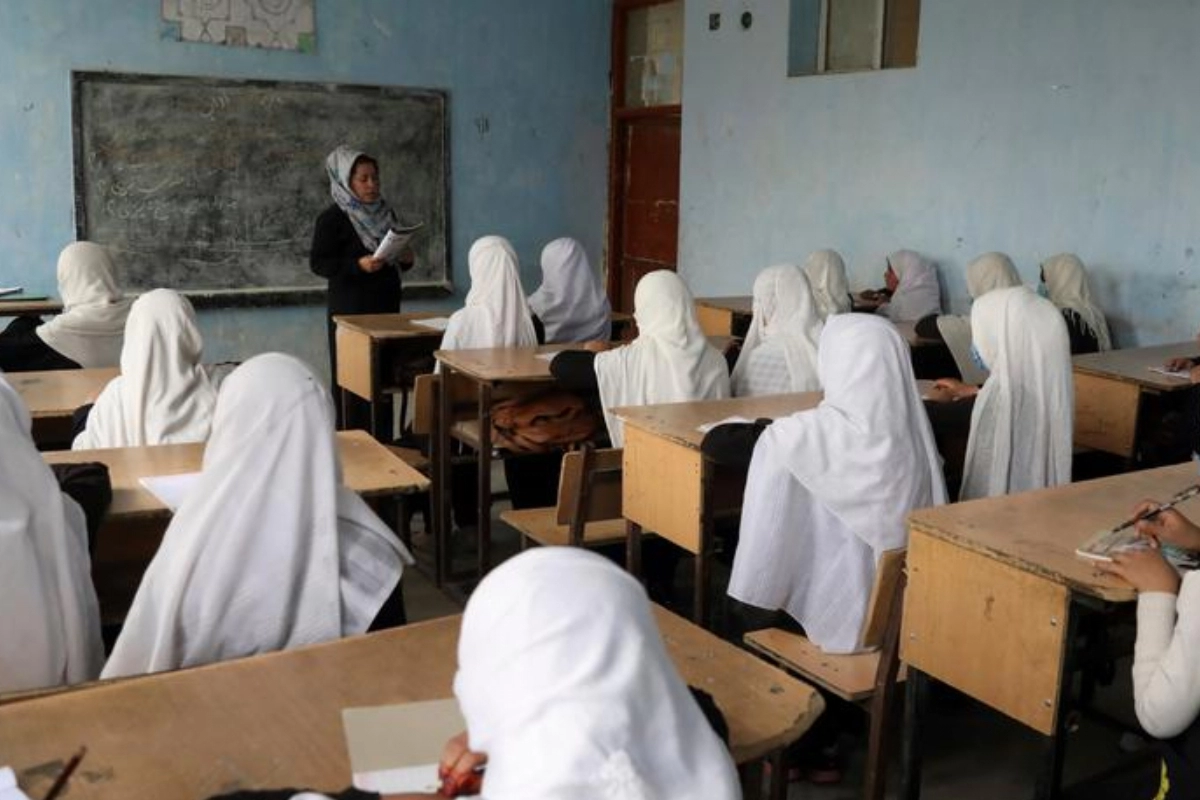Taliban: Girls can now continue their education at schools through the sixth grade, according to the Taliban’s Ministry of Education.
The education ministry of the Taliban sent out a letter requesting that educational facilities be opened for girls younger than sixth grade.
Also Read: Chinese physicians urged not to list Covid-19 as the primary cause of death
Ministry recently ordered an indefinite ban on women attending universities
Following a crackdown on women’s education by the Taliban administration in Afghanistan, the higher education ministry recently ordered an indefinite ban on women attending universities there. This action drew criticism from nations with a Muslim majority as well as the international community.
Since taking over the nation in August 2021, the Taliban have widely imposed their harsh interpretation of Islamic law, while initially pledging a more moderate government that respected the rights of women and minorities.
They prohibited girls from attending middle and high school, barred them from the majority of jobs, and required them to dress completely in public. Additionally, women were prohibited from entering parks and gyms and from travelling without a male relative.
They prohibited girls from attending middle and high school, barred them from the majority of jobs, and required them to dress completely in public. Additionally, women were prohibited from entering parks and gyms and from travelling without a male relative.
Before it can contemplate legally recognising the Taliban-run administration, which is also subject to harsh sanctions, foreign governments, including the United States, have stated that a change in policies on women’s education is required.
Also Read: Bharat Jodo Yatra: ‘Women power takes India forward,’ slogans raised as all-female march in Haryana
Foreign ministers of the G7 nations asks Taliban to lift the ban
In a letter to the Taliban, the foreign ministers of the G7 nations—Canada, France, Germany, Italy, Japan, the United Kingdom, the United States, and the European Union—had asked them to lift the ban and warned that “gender persecution may amount to a crime against humanity.” “Taliban policies meant to eliminate women from public life will have ramifications for how our countries engage with the Taliban,” the ministers had cautioned.
In a letter to the Taliban, the foreign ministers of the G7 nations—Canada, France, Germany, Italy, Japan, the United Kingdom, the United States, and the European Union—had asked them to lift the ban and warned that “gender persecution may amount to a crime against humanity.” “Taliban policies designed to erase women from public life will have consequences for how our countries engage with the Taliban,” the ministers had cautioned.
All three Muslim nations—Turkey, Qatar, and Pakistan—had voiced their displeasure with the university restriction and encouraged officials to reverse or rethink their choice. The “Afghan caretaker government” had been urged by Qatar to examine the restriction in light of Islamic teachings regarding women’s education.
However, Nida Mohammad Nadim, the minister of higher education in the Taliban regime, has supported the ban on women’s education, claiming that it was put in place to avoid gender mixing in universities and because he thinks some courses being taught contradicted Islamic values. world should quit meddling in Afghanistan’s internal issues, according to Nadim.
Keep watching our YouTube Channel ‘DNP INDIA’. Also, please subscribe and follow us on FACEBOOK, INSTAGRAM, and TWITTER
